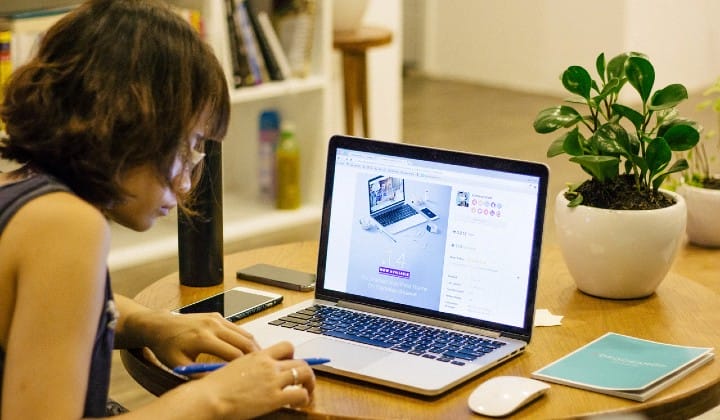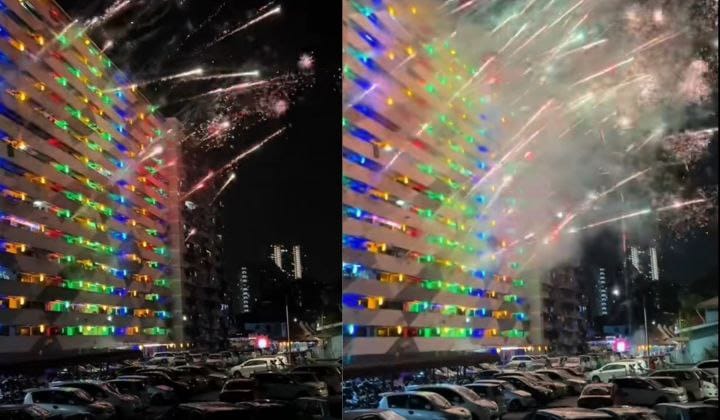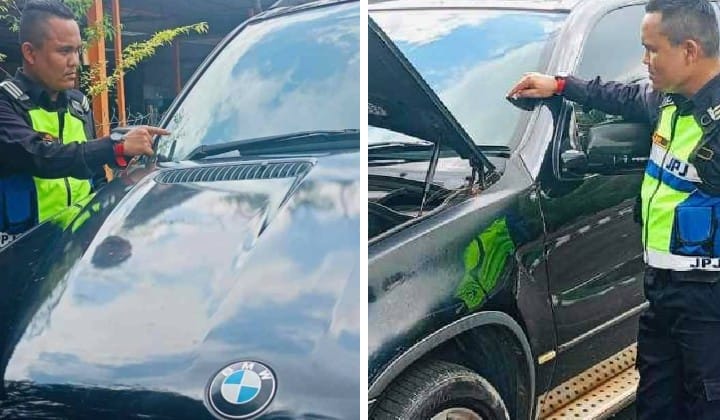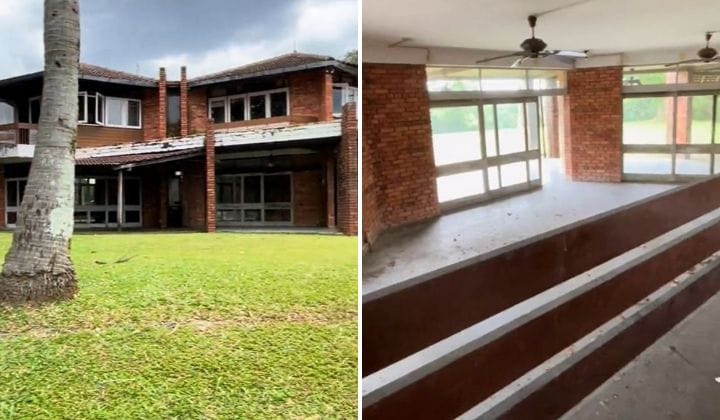[UPDATE] CMCO WFH: Who Can Go Office & Who Cannot
WFH will apply to everyone working in management and administration roles during the CMCO.

Subscribe to our Telegram channel for the latest stories and updates.
Work-from-home (WFH) orders will only apply to people working in management and administration roles for all public and private sectors in Kuala Lumpur, Putrajaya, Labuan, Selangor and Sabah.
Attempting to clarify the mandatory WFH orders enforced within the Conditional Movement Control Order (CMCO) zone beginning October 22, Senior Minister (Defence) Datuk Seri Ismail Sabri Yaakob explained that workers from all other businesses, economic, industrial and essential services are still allowed to operate and attend work per-usual with adherence to standard operating procedures (SOP).
He also revealed that Malaysian employees are not required to undergo mandatory Covid-19 testing before heading back to the office.
Read More: No Mandatory Covid-19 Test For Malaysians Working In CMCO Zone
Malaysians are advised to refer to guidelines issued by the Ministry of International Trade and Industry (MITI), the Public Service Department (JPA) and the National Security Council (NSC) for further details.
So who’s supposed to WFH?
Private sector
According to MITI, 776,135 of the 3.1 million workers within the CMCO will be affected by the WFH order.
MITI guidelines state that only a maximum of 10% of a company’s workforce from specific departments can be present at the office at any given time;
- Accounting
- Financing
- Administration
- Legal
- Planning
- Information and communications technology (ICT)
These workers are only allowed to attend the workplace 3 times a week and work for only 4 hours between 10 am to 2 pm and would require a permission letter from said company.
Companies also do not require any formal consent from the government to continue operating.
Seperti yang dimaklumkan @MKNJPM , amalan Bekerja Dari Rumah (BDR) atau Work From Home (WFH) adalah wajib bg kakitangan pengurusan & penyeliaan sbg langkah untuk mengurangkan risiko penularan jangkitan pandemik COVID-19 di kawasan yg sdg menjalani PKPB. pic.twitter.com/o7w4j8yN9J
— MITI Malaysia (@MITIMalaysia) October 21, 2020
Additionally, Ismail Sabri explains that all other workers from other “informal sectors” such as; retail, food and beverage, plantation and agriculture, hawkers and food stalls, restaurants, grocery stores, etc. are allowed to work as normal.
This would also include individuals working in the transportation and logistics industry such as; public transport operators as well as e-hailing delivery and rideshare workers.
Similarly, a travel release or permission letter for each working staff member would need to be provided by employers.
Public sector
Based on JPA guidelines, government offices will only allow a maximum of 30% of its staff to be present at the office during the CMCO, excluding those in essential services.
Public servants working in management and administration roles are required to WFH and are only expected to either take turns coming into the office or work half time.
All ministerial, department and agency activities such as meetings as well as training will be done online.
JPA would also allow workers to take home official classified documents if the need arises.
Economic Activities Within Areas Under CMCO
Based on previous CMCO rules published by the National Security Council (NSC), vital industries are allowed to operate with adherence to SOP;
- All business, economic, and industrial activities are allowed to operate.
- All food and beverage businesses, including grocery stores and convenience stores, are allowed to operate between 6am to 10pm.
- Purchases of food are encouraged to be done via drive-thru, delivery, or take away.
- Dining-in is allowed with a maximum of four people per table and compliant with food sector SOPs.
- Daily markets are allowed to operate from 6am to 2pm only.
- Wholesale markets are allowed to operate from 4am to 2pm only.
- Farmers markets are allowed to operate from 6am to 12pm only.
- Night markets are allowed to operate between 4pm to 10pm only.
- Farmers market and night markets must strictly adhere to SOPs and will be monitored by RELA personnel.
- Petrol stations are allowed to operate from 6am to 10pm (this excludes petrol stations on highways, who are allowed to operate 24 hours.)
- All public transport services are allowed to operate.
- Taxi and e-hailing services can have a maximum of two passengers.
- Food delivery services are allowed to operate from 6am to 12am.
Medical and Health
- Clinics, government and private hospitals are allowed to operate 24 hours.
Pharmacies and shops selling medication can operate from 8am to 11pm. - Gym are allowed to open
- Outdoor parks are allowed to open (only in Kuala Lumpur and Putrajaya)
Economy and Industrial Sectors
All vehicles involving industrial, business, and manufacturing are allowed to operate as usual.
Fisheries, Plantation, and Agriculture
Fisheries, plantations, agriculture, livestock, and other activities related to the food chain are allowed to operate.
Ports and Airports
Activities and services at all airports and ports are allowed to operate.
Tourism
All tourism activities involving entering or leaving the CMCO area are not allowed
Malaysians confused
Despite the updated standard operating procedure (SOP), many Malaysians are still puzzled by the rules and restrictions of the WFH order and have taken to the internet to express their concerns.
Read More: More CMCO Updates: WFH Now Mandatory, But There’s Exceptions
Netizens had expressed confusion on weather the WFH order would apply to their specific job description and industries as well as curious on whether they needed to perform mandatory Covid-19 screenings before they are allowed to go to work.
Hi Miti. Could you advise more on this. That means for a company, only 10% of staff can come to office 3 times in a week , timing 10am to 2pm? So we cant practice alternate rotation for our staff right? The company is only able to operate 3 times in a week at offfice?
— Zoya (@zoyakiara8) October 21, 2020
Can u plz clarify the below Qs-
— Chao (@Chao_Lengdon) October 21, 2020
1. Is this applicable to all sectors?
2. 10%-3hours-4 days : Is this an exception and employees below supervisory level has to mandatorily WFH?
3.Swab test applicable to only those who travel to work from Red Zones ?
4. Is this till 27th Oct ?
Hi MITI, jus to clarify, the compulsory WFH is applicable to Management level staff in company? Kindly advise what about production staff in manufacturing industry? Thank you.
— Wai Yip ® ♫♫♫ (@wyipleong) October 21, 2020
so 10% pekerja admin, akaun, finens, planning, ICT, legal boleh pi office 4 jam sehari 3 kali seminggu. Kena kasi surat. Depa ni kena swab test ka kalau berulang dari tempat red zone?
— Oden Fujiyama (@FujiyamaOden) October 21, 2020
OK 10% of management staff can go Office. But gyms and malls all open? Macam mana ni? Doesn’t make sense. MITI lain MKN lain?
— shakir (@ShakirAmeer) October 21, 2020
Share your thoughts with us on TRP’s Facebook, Twitter, and Instagram.
Typing out trending topics and walking the fine line between deep and dumb.








